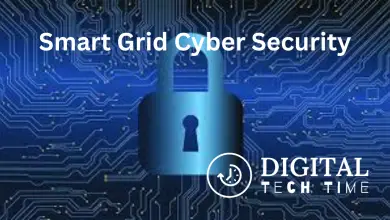MCA Cyber Security: Protect Your Business from Online Threats
MCA Cyber Security: Protect Your Business from Online Threats

Cybersecurity is an important aspect of the digital world. With the rise of cyber threats, companies need professionals to protect their systems and networks from unauthorized access and malicious attacks. Master of Computer Applications (MCA) in Cyber Security is a postgraduate degree designed to meet the increasing demand for cybersecurity professionals.
MCA Cyber Security is a two-year program that provides students with the skills and knowledge required to protect computer systems and networks. The program covers various domains such as cyber forensics, network security, cryptography, and ethical hacking. Students also learn about the legal aspects of cybersecurity, which includes cyber laws and regulations.
The program is designed to equip students with the necessary skills to tackle the challenges of cybersecurity. Graduates of the program can pursue a career as a cybersecurity analyst, security consultant, security architect, or network administrator. The demand for cybersecurity professionals is high, and the career opportunities in this field are endless.
Key Takeaways
- MCA Cyber Security is a two-year postgraduate program that provides students with skills and knowledge required to protect computer systems and networks.
- The program covers various domains such as cyber forensics, network security, cryptography, and ethical hacking.
- Graduates of the program can pursue a career as a cybersecurity analyst, security consultant, security architect, or network administrator.
Understanding Cyber Security

Cybersecurity is a field that deals with the protection of digital systems, networks, and data from unauthorized access, theft, damage, or other malicious activities. It is a critical aspect of modern-day life, as everything from personal information to financial transactions is conducted online.
There are various types of cyber threats, including malware, phishing attacks, ransomware, and hacking. Cybersecurity professionals use a range of tools and techniques to prevent, detect, and respond to these threats.
One of the essential aspects of cybersecurity is risk management. This involves identifying potential risks and vulnerabilities, assessing their likelihood and potential impact, and implementing measures to mitigate or eliminate them.
Another critical aspect of cybersecurity is compliance. Many industries and organizations are subject to regulations and standards governing their cybersecurity practices. These regulations often require regular risk assessments, security audits, and other measures to ensure compliance.
To be successful in the field of cybersecurity, professionals must have a broad range of knowledge and skills. This includes an understanding of computer networks, operating systems, programming languages, and security protocols. They must also be able to analyze data, identify patterns, and communicate effectively with both technical and non-technical stakeholders.
Overall, cybersecurity is a complex and ever-evolving field that requires constant learning and adaptation. As technology continues to advance, so too must the tools and techniques used to protect against cyber threats.
Master of Computer Applications (MCA) Overview
Master of Computer Applications (MCA) is a postgraduate degree program that provides in-depth knowledge and skills in computer applications. MCA is a three-year program that focuses on computer languages, computer systems, and computer applications. It is designed to provide students with a strong foundation in computer science and prepare them for a career in the field of computer applications.
MCA is a popular course among students who want to pursue a career in the field of computer applications. The course covers topics such as software development, computer networks, database management, web development, and cyber security. MCA graduates are in high demand in the IT industry, and they can work in various roles such as software developer, system analyst, network administrator, and database administrator.
The MCA course curriculum is designed to provide students with a deep understanding of computer science and its applications. The course includes both theoretical and practical components, and students are required to complete projects and assignments to demonstrate their knowledge and skills.
To be eligible for the MCA course, students must have a bachelor’s degree in computer science or a related field. Some universities also require students to take an entrance exam before they can be admitted to the program.
Overall, the MCA program provides students with a solid foundation in computer science and prepares them for a career in the field of computer applications. With the increasing demand for skilled professionals in the IT industry, pursuing an MCA degree can be a great career move for students who are interested in the field of computer applications.
Importance of Cyber Security in MCA
Cybersecurity is a critical aspect of the modern digital world. With the increasing reliance on technology, the need for cybersecurity has become more important than ever. This is especially true for those pursuing a career in the field of MCA.
MCA graduates often work in roles that require them to handle sensitive and confidential data. They are responsible for developing, implementing, and managing complex IT systems. As such, they must be well-versed in cybersecurity principles to ensure the safety and security of the systems they manage.
Cybersecurity is not just about protecting data and systems from external threats. It also involves ensuring the integrity, confidentiality, and availability of information. MCA graduates must be aware of the latest cybersecurity threats and trends, and have the skills and knowledge to prevent, detect, and respond to cyber attacks.
One of the most significant benefits of cybersecurity is that it helps to build trust and confidence in the digital world. When organizations implement robust cybersecurity measures, they demonstrate their commitment to protecting their customers’ data and privacy. This, in turn, helps to build trust and confidence in their brand.
In conclusion, cybersecurity is an essential aspect of MCA. Graduates must be well-versed in cybersecurity principles and have the skills and knowledge to prevent, detect, and respond to cyber attacks. By doing so, they can help to build trust and confidence in the digital world and ensure the safety and security of the systems they manage.
Cyber Security Courses in MCA
MCA in Cyber Security is a postgraduate program that focuses on developing expertise in cyber security and related fields. The program covers topics such as network security, cryptography, cloud security, digital forensics, and more.
Network Security
Network Security is a subfield of cyber security that deals with securing computer networks from unauthorized access, misuse, or modification. In MCA Cyber Security, students learn about different network security protocols, network vulnerabilities, and how to secure networks against cyber attacks.
Cryptography
Cryptography is the practice of securing information by converting it into a code that can only be deciphered by authorized individuals. MCA Cyber Security students learn about different encryption techniques, digital signatures, and cryptographic protocols. They also learn how to use cryptography to secure data transmission, storage, and access.
Cloud Security
Cloud Security is a subfield of cyber security that focuses on securing cloud computing systems and applications. In MCA Cyber Security, students learn about different cloud security models, cloud security risks, and how to secure cloud-based applications and services.
Digital Forensics
Digital Forensics is the process of collecting, analyzing, and preserving digital evidence for use in legal proceedings. MCA Cyber Security students learn about different digital forensics techniques, tools, and methodologies. They also learn how to use digital forensics to investigate cyber crimes, data breaches, and other security incidents.
Overall, MCA Cyber Security courses provide students with a comprehensive understanding of cyber security concepts, principles, and practices. Graduates of the program are well-equipped to pursue careers in the field of cyber security, including roles such as cyber security analyst, network security engineer, security consultant, and more.
Career Opportunities in Cyber Security After MCA
With the increasing demand for cybersecurity professionals, pursuing a career in cyber security after completing an MCA degree can be a great career choice. MCA graduates possess a strong foundational knowledge of computer applications, programming languages, database management systems, and networking, which are essential skills in the field of cyber security.
Here are some of the career opportunities in cyber security after MCA:
Security Analyst
A security analyst is responsible for monitoring and analyzing an organization’s security systems to identify potential security threats and vulnerabilities. They also develop and implement security measures to protect the organization’s data and systems from cyber attacks. A security analyst should have a strong understanding of network protocols, firewalls, intrusion detection systems, and other security technologies.
Security Architect
A security architect designs and develops secure information systems that meet an organization’s security requirements. They work closely with other IT professionals to ensure that security is integrated into all aspects of the system development life cycle. A security architect should have a strong understanding of security principles, risk management, and security technologies.
Security Auditor
A security auditor is responsible for evaluating an organization’s security policies, procedures, and controls to ensure they meet industry standards and regulatory requirements. They also identify potential security risks and recommend ways to mitigate them. A security auditor should have a strong understanding of security standards and regulations, risk management, and auditing techniques.
Cyber Security Manager
A cyber security manager is responsible for overseeing an organization’s overall security strategy and ensuring that it aligns with the organization’s goals and objectives. They also manage a team of security professionals and collaborate with other IT professionals to ensure that security is integrated into all aspects of the organization’s operations. A cyber security manager should have a strong understanding of security principles, risk management, and leadership.
In conclusion, pursuing a career in cyber security after MCA can be a wise decision for those who are interested in the field of IT security. With the right skills and knowledge, MCA graduates can take advantage of the growing demand for cybersecurity professionals and build a rewarding career in this field.
Challenges in Cyber Security
As the world becomes more connected, the threat of cyber attacks continues to grow. Malicious cyber actors (MCA) are constantly finding new ways to exploit vulnerabilities and gain access to sensitive information. Here are some of the biggest challenges in cyber security:
Evolving Threat Landscape
The threat landscape is constantly evolving, with new threats emerging all the time. Cyber criminals are becoming more sophisticated, using advanced techniques like social engineering, phishing, and ransomware to gain access to systems and steal sensitive information. As a result, it is essential for organizations to stay up-to-date with the latest security technologies and best practices.
Lack of Skilled Professionals
There is a shortage of skilled cyber security professionals, which makes it difficult for organizations to protect themselves against cyber attacks. As the demand for cyber security professionals continues to grow, it is becoming increasingly difficult to find qualified candidates to fill open positions.
Complexity of IT Systems
Modern IT systems are incredibly complex, with multiple layers of hardware and software that must be secured. This complexity makes it difficult to identify and address vulnerabilities, and can make it easier for cyber criminals to exploit weaknesses in the system.
Insider Threats
Insider threats are a major concern for organizations, as employees can inadvertently or intentionally cause security breaches. This can include actions like sharing passwords, accessing unauthorized information, or downloading malware onto company devices.
Compliance and Regulations
Compliance and regulations are a major challenge for organizations, as they must comply with a variety of laws and regulations related to data privacy and security. This can be a complex and time-consuming process, and failure to comply can result in significant fines and legal consequences.
Overall, cyber security is a complex and challenging field that requires constant vigilance and attention. Organizations must stay up-to-date with the latest threats and best practices, and work to build a culture of security throughout the organization.
Future of Cyber Security

The future of cyber security is a topic of great interest and concern for many individuals and organizations. With the increasing reliance on technology and the growing number of cyber threats, it is important to stay ahead of the curve and anticipate what the future may hold.
One trend that is expected to continue is the use of artificial intelligence (AI) and machine learning (ML) in cyber security. These technologies can help detect and respond to threats more quickly and accurately than traditional methods. Additionally, the use of blockchain technology is expected to increase in the coming years, as it can provide enhanced security and transparency in data management.
Another trend is the growing importance of privacy and data protection. With the implementation of new regulations such as the General Data Protection Regulation (GDPR) and the California Consumer Privacy Act (CCPA), organizations are being held more accountable for how they handle and protect personal data. As such, cyber security measures will need to be strengthened to ensure compliance and prevent data breaches.
The rise of the Internet of Things (IoT) is also expected to pose new challenges for cyber security. With more devices being connected to the internet, there is an increased risk of cyber attacks on these devices. As such, there will be a need for enhanced security measures to protect these devices and the data they collect.
Overall, the future of cyber security will require a combination of advanced technologies, strong regulations, and increased awareness and education. It is important for organizations and individuals alike to stay informed and proactive in their approach to cyber security to ensure a safe and secure digital future.
Frequently Asked Questions
What are the eligibility criteria for pursuing MCA Cyber Security?
To pursue MCA Cyber Security in India, a candidate must have a Bachelor’s degree in Computer Science or a related field with a minimum of 50% marks. Some universities also require a valid score in entrance exams like NIMCET or MAH-MCA-CET.
What are some of the top colleges in India offering MCA Cyber Security?
Some of the top colleges in India offering MCA Cyber Security programs are Amrita School of Engineering, Jain University, Lovely Professional University, and Symbiosis Institute of Computer Studies and Research.
What is the fee structure for MCA Cyber Security programs?
The fee structure for MCA Cyber Security programs varies from college to college. On average, the program fee ranges from INR 1,00,000 to INR 3,00,000 per year. However, some universities may charge a higher fee.
What is the difference between MCA Cyber Security and MSc Cyber Security?
MCA Cyber Security is a Master’s degree program in Computer Science with a specialization in Cyber Security. On the other hand, MSc Cyber Security is a Master’s degree program in Cyber Security that covers various aspects of information security, including cryptography, network security, and digital forensics.
Is pursuing a Masters in Cyber Security worth it?
Yes, pursuing a Masters in Cyber Security is worth it as it provides in-depth knowledge and skills required to secure computer systems and networks from cyber attacks. The demand for Cyber Security professionals is increasing day by day, and the job opportunities in this field are expected to grow in the coming years.
What is the scope of information security in MCA?
The scope of information security in MCA is vast. The program covers various topics such as computer networks, cryptography, information security, cyber laws, digital forensics, and incident response. After completing the program, one can work as a Cyber Security Analyst, Information Security Manager, Network Security Engineer, or Penetration Tester, among other roles.





